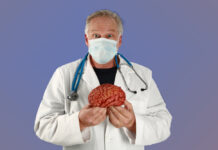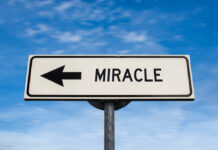Saving Lives or Cementing Stigma? A Review of “Just Like You…”
In my experience, episodes of anxiety and depression dwindle in the face of hope and empowerment, while broken-brain narratives lead to deeper despair.
Mad in (S)pain
A Q&A with the team members who edit and run Mad in (S)pain: "There must be a radical change in the way mental suffering is understood and cared for."
The Dramatic Results of John Weir Perry’s Diabasis House Program
John Weir Perry’s Diabasis House Program both built on and exceeded Jung’s previous understanding of psychosis.
The Grief Pill is Coming!
If you yearn or pine too long for your dead child, partner, spouse, or friend, you may be addicted to grief, according to the new revision of the DSM.
Mad in Finland
The people who run Mad in Finland have experienced profound awakenings in the course of their lives, moments of awareness when they understood the failures of the psychiatric disease model and saw its harms.
Mad in the UK
Mad in the UK describes its mission as “Fundamentally re-thinking UK mental health practice and promoting positive change.”
The Functions of the Mental Health System Under Capitalism
The mental health system is a system of care and control, legitimated by the concept of mental illness, and playing an important role in capitalist and Neoliberal societies.
Thomas Jobe: The Legacy of Research He Leaves Behind
Thomas Jobe was a collaborator in a longitudinal study that upended conventional thinking about antipsychotics. He died March 16.
Former NIMH Director’s New Book: Why, With More Treatment, Have Suicides and Mental Distress...
Psychiatry’s worsening outcomes despite increased treatment should provoke the consideration that a paradigm shift is necessary.
Mad in Sweden
Lasse Mattila, founder of Mad in Sweden: "You only ask the question, ‘What’s wrong with you? What symptoms do you have?’ But you don’t ask: ‘What happened to you? What tragedies did you have?’”
Why Do We Lock People Up?
Every day, people who have not broken any laws have their human rights suspended indefinitely, without a formal judicial hearing, all on unsworn hearsay evidence and with practically no right of appeal.
Why Do People Self-Harm, and How Can We Stop It?
The psychiatric treatments I underwent did nothing to help me come to terms with my troubled past. Self-harm did not serve me well either. We must re-learn what to expect from ourselves.
The ENIGMA-MDD Project: Searching for the Neuropathology of “Major Depressive Disorder”
There's an old saying in research: "garbage in; garbage out". Research based on invalid concepts or false assumptions will produce invalid conclusions.
Fifty-Eight Years Beyond the Community Mental Health Act, 1963
Do not focus on "getting more beds" or "providing better treatment." Focus on homes with windows and giant gardens where survivors can be coached to rebel and dance with wild abandon.
Mad in Canada
Mad in Canada aims to bridge the “knowledge gap” between practice and science, pushing patient care further up the list of priorities.
Desperate Remedies
History shows us that the mentally ill are extraordinarily vulnerable to therapeutic experimentation, some particularly brutal and extreme, which continues to the present day.
The Looting of “Outsider Art” by Psychiatry Continues Today
The German museum of the Prinzhorn Collection, which opened in 2001, exhibits the stolen art of those considered by the Nazis to be "degenerates."
Anti-Psychiatry, Szasz, Torrey, Biederman & the Death of Freethinking
Americans appear to be increasingly terrified by the possibility of ostracism, including for failing to conform to psychiatry dogma. This prevents critical thinking.
Mad in México
Mad in México, which launched in September of last year, exists to make “los abandonados” heard. It aims to amplify those voices, empower them, embolden them.
Psychiatry Upgraded the Declaration of Independence
According to psychiatry, unhappiness is a medically treatable disease. No need to "pursue" happiness other than by swallowing pills called “antidepressants.”
The Censors Are Coming for Mental Health
To a profession that regularly uses coercion and force to keep clients medicated, any information that might dissuade from treatment is hazardous.
Mad in the Netherlands
“We had a goal of being a gateway that provides access to international knowledge and information about psychiatry,” said founder and editor Monique Timmermans.
Robert Spitzer on DSM-III: A Recently Recovered Interview
Robert Spitzer, chair of the Task Force for DSM-III, discusses his decisions on inclusion, exclusion, expansion, and renaming disorders in the manual.
Collateral Damage: The Negative Impact of Antidepressants on New Zealand Youth
Health and wellbeing in young people are trending down in New Zealand. Are antidepressants to blame?
Toxic Marketing: The Business of Selling TMS
Ads pushing transcranial magnetic stimulation are everywhere. As someone harmed by the treatment, I believe they are misleading and unethical.

































